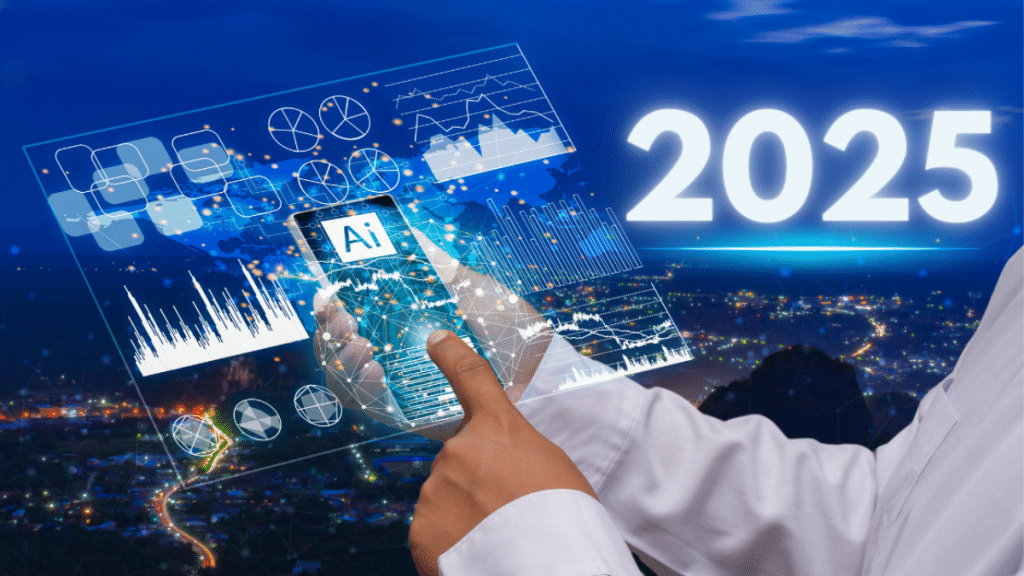Artificial Intelligence continues to revolutionize industries at an unprecedented pace, transforming how businesses operate.
As we step into 2025, many key trends are shaping the AI landscape, making it important for organizations to stay ahead of the curve.
Here are the most significant trends that are redefining AI and its applications in the business world.
Multimodal Models
One of the most exciting advancements in AI is the rise of multimodal models. Unlike traditional models, which focus on a single data type, such as images or text, multimodal AI can simultaneously process and interpret multiple data types. For example, a multimodal AI system can analyze a combination of customer social media posts, reviews, and video testimonials to provide deeper insights into customer sentiment.
This capability is useful for businesses seeking to enhance customer experiences. Retailers, for instance, use multimodal AI to create personalized shopping experiences by integrating visual product searches, customer behavior analysis, and voice commands. The apps of these modals extend to marketing, healthcare, etc, promising a new era of data-driven decision-making.
Synthetic Data Generation
Access to quality data has always been a challenge for businesses aiming to train AI models. Synthetic data generation addresses this issue by creating realistic yet artificial datasets that mimic real-world scenarios. This technique not only saves resources and time but also helps organizations overcome privacy concerns by generating anonymized data.
For example, financial institutions can use synthetic data to stimulate various economic scenarios and test risk models without compromising sensitive customer information. Similarly, synthetic data is aiding autonomous vehicle development by creating different driving scenarios that might not be easily captured in real-world conditions. Businesses investing in AI development services can benefit significantly from this trend, as it enables strong model training with minimal reliance on real data.
Agentic AI
Agentic AI refers to the systems capable of acting autonomously to achieve specific goals. These systems are designed to make decisions, learn from interactions, and adapt their actions without constant human intervention.
This trend is particularly valuable for sectors like manufacturing, customer service, and logistics.
For instance, autonomous supply chain management systems can optimize routes, predict demand, and manage inventory. In customer service, agentic AI-powered chatbots provide support to the users and resolve complex queries without human involvement.
Integration of AI in Enterprise Solutions
The integration of AI into enterprise solutions is no luxury but a necessity for businesses aiming to stay competitive. From customer relationship management (CRM) to enterprise resource planning (ERP), AI is being embedded into core business tools to enhance productivity and decision-making.
AI-driven analytics tools enable enterprises to uncover trends and patterns in vast datasets, leading to more informed strategies. For example, In marketing, AI can analyze campaign performance in real time and suggest actionable optimizations. AI strategy consulting helps organizations navigate the integration effectively, ensuring they choose the right tools and implement them easily.
AI Governance and Ethical Frameworks
As AI becomes deeply embedded in business processes, concerns around bias, ethics, and accountability are gaining prominence. AI governance and ethical frameworks are emerging as critical components for ensuring responsible AI deployment.
Businesses are increasingly adopting guidelines that emphasize fairness, accountability, and transparency in AI systems. For instance, financial services firms use explainable AI to ensure fairness in loan approvals, while healthcare organizations prioritize unbiased algorithms in diagnostic tools.
Advancements Toward Artificial General Intelligence (AGI)
While current AI systems are highly specialized, the pursuit of Artificial General intelligence is gaining momentum. AGI aims to develop machines with cognitive abilities comparable to humans, capable of performing a wide range of tasks across different domains.
Though AGI remains a long-term goal, advancements in this area are influencing present-day AI systems. Businesses are benefiting from these developments through enhanced machine learning models, improved NLP, and innovative AI solutions.
Conclusion
The trends shaping AI in 2025 highlight its immense potential to transform businesses across industries. From multimodal models to agentic AI and synthetic data generation, innovations are driving efficiency, scalability, and personalization. Moreover, the emphasis on AI governance ensures that these advancements are implemented responsibly.
For businesses looking to harness these trends, partnering with experts in AI development services can provide the expertise needed to implement cutting-edge solutions effectively. As organizations continue to embrace AI, the journey toward smarter, more efficient, and innovative operations is just beginning.

